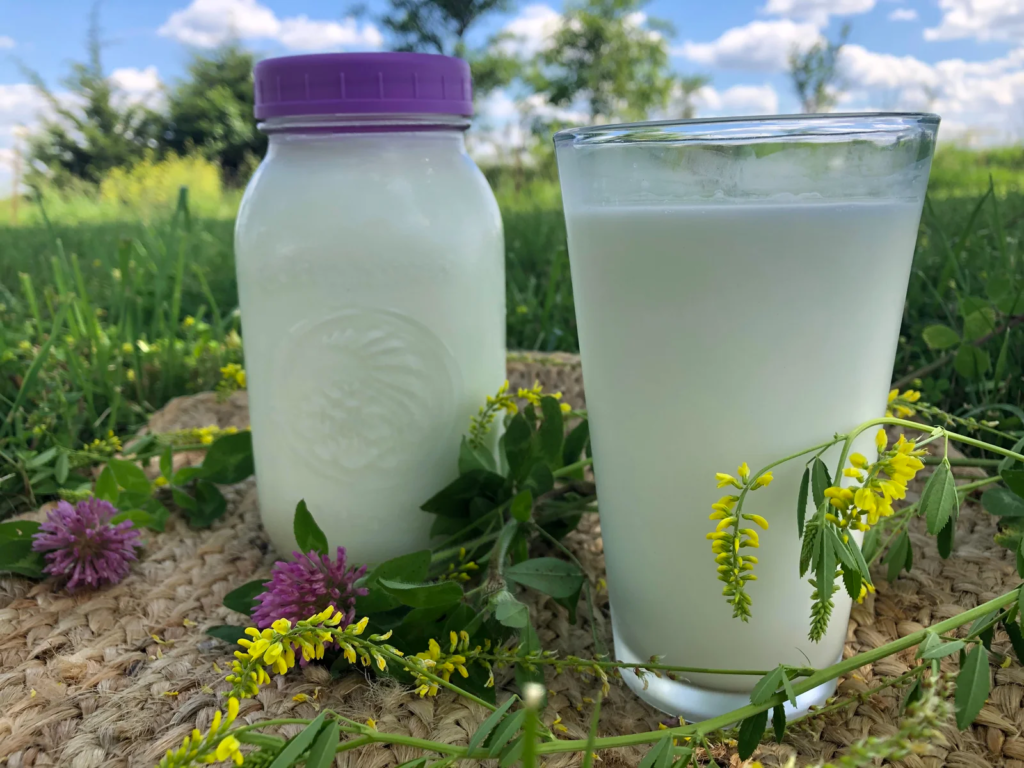
Uses & Flavor
Those of you who get milk from us KNOW that there is a difference in our milk and what you buy from the store. In fact, our top 3 groups of milk-purchasing clients are those who:
- are lactose intolerant to cow’s milk
- have inflammatory conditions, such as rheumatoid arthritis, fibromyalgia, etc
- are feeding newborns and infants
If you’re not sure on the flavor of goat’s milk, that’s okay. Goat milk can be sweet and creamy, but must be handled properly. If your only exposure to goat’s milk is from the store, for the love, please do not use that experience to determine the entirety of your opinion! Retailed goat’s milk is not fair to what the flavor really can be.
Let’s address “goaty” flavor. We hear this concern a lot. Yes, under the wrong circumstances, goat milk can be “goaty.” BUT when the milk is rapidly chilled after milking, proper cleanliness is kept of milking receptacles (stainless steel or glass containers are a must!), the does are kept from the bucks, and the milk is fresh, the milk is creamy, sweet, and delicious! Goat milk does contain a naturally-occurring enzyme called caproic acid that strengthens in the milk over time, giving it a stronger flavor. We encourage consumers to drink their milk within a week and everything you buy off of the farm is incredibly fresh!
Benefits
Our clients can tell of the benefits of goat’s milk the best! Countless of our raw milk consumers have told us that it alleviates their “tummy trouble” — code for all kinds of gastrointestinal distress. This makes sense because goat’s milk is lower than lactose than cow’s milk. Additionally, the fat globules within goat’s milk are more naturally homogenized (mixed up) than cow’s milk; your body does not have to work as hard to digest goat’s milk.
What about milk allergies? Some allergic reactions to cow’s milk are caused by the primary type of casein (milk protein) in it (alpha casein). For those sensitive to higher percentages of alpha casein, the lower percentage of this in goat’s milk is tolerable; goat’s milk has a higher percentage of beta casein instead.
Goat’s milk is also higher in calcium, potassium, magnesium, vitamin A, and vitamin C than cow’s milk. The natural microflora present in raw milk may additionally add to decreased inflammation, but raw vs pasteurized milk is a whole different can of worms we will open in a different newsletter.
Do you have a goat milk/product success story you’d like to share? Comment below or shoot us an email at farm@graceheritagefarms.com; we’d love to hear your story!
